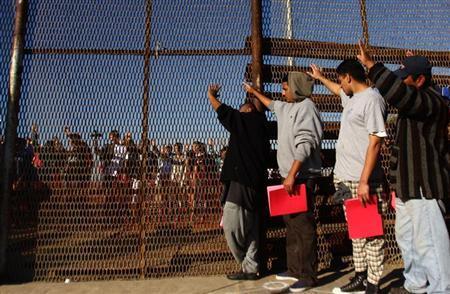How pastors and churchgoers can approach immigration together

For the last two years, our church’s work with our local international population has brought me into contact with hundreds of other pastors who are deeply convicted about the Church’s role in loving, welcoming, and serving immigrants and refugees. Many are also conflicted, because the topic of immigration is so divisive in our current cultural climate.
A poll of Protestant pastors released in February by LifeWay® Research reveals that, though the majority of pastors believe it is the biblical responsibility of Christians to serve immigrants, only 3 out of 10 could say that their churches are actually doing so. In my own conversations with pastors, I have met many who are actively engaged in such ministries, and some who are seeking to take the first steps. I have also spoken to others who attempted to wade into the breakers but, having seen waves in front of them, decided to back up onto the shore.
The world of advocacy can be a lonely place at times, but it need not be on this issue. My experience has been that most church people are eager to not only show compassion, but to serve and be generous also. Moreover, this recent collection of findings from the Cato Institute reveals that church-going people are far more likely to seek constructive and compassionate solutions for immigrants than those who do not attend church.
As we who are pastors continue to teach and lead according to the Scriptures, together we can demonstrate that it is entirely possible to honor Christ, love our immigrant neighbors, and uphold the law at the same time.
First and foremost, pastors and parishioners alike must draw our insights about immigration from the Bible. Indeed, the Scriptures are neither vague nor ambiguous about this topic. Dozens of clear and consistent instructions in each part of the Bible speak to our responsibility to those who are “strangers in our land” — from the Hebrew narratives, to the Law, to the Prophets and the Writings, to the ministry and teachings of Jesus, and throughout the New Testament letters as well.
Guided by such biblical teachings, my own denomination, the Southern Baptist Convention (SBC), unanimously voted for a resolution on immigration in 2018. The resolution displays a consistent commitment by many leaders in the SBC, including myself, to love and serve immigrants and refugees, while also being upstanding, law-abiding citizens as the Bible instructs.
Further reflection on this issue beyond the SBC reveals that most Protestant pastors are very like-minded regarding immigration related issues. This includes being appropriately concerned about illegal immigration. According to the full LifeWay data, 80 percent of pastors surveyed agree that “the U.S. government has the responsibility to stop illegal immigration.” We do not allow our churches to willfully facilitate any illegal activities. We want to see the Constitution upheld and immigration laws enforced — in the most humane ways possible.
That said, we also believe that legal status does not nullify our Christian duty. More than three-fourths of the pastors LifeWay surveyed believe “Christians have a responsibility to assist immigrants, even if they are here illegally.” Again, this does not mean pastors condone breaking or abolishing any laws. In our church, for example, we have developed ministries and strategies that are fully committed to helping people take the appropriate steps to secure and maintain legal status.
Unfortunately, our complicated immigration system creates a very frustrating process that is currently experiencing many puzzling delays. The more we as pastors work with immigrants directly, the more we see an urgent need for the comprehensive immigration reform that Congress has been seeking for decades. I find the six principles of the Evangelical Immigration Table to be a helpful tool to share in terms of immigration reform that has strong biblical roots.
We also believe citizenship should be an attainable goal for more immigrants. In the LifeWay poll, 70% of pastors said they are “in favor of immigration reform that provides a path to citizenship for those who are in the country illegally.” From my own conversations, the number is far higher when pastors are asked about those who were brought to the U.S. as undocumented children, many of whose parents have now gained legal status while they have not.
The response to this question affirms something I have observed repeatedly: Pastors are digging into this issue both biblically and factually and becoming more informed. The 70 percent support represents a significant shift from less than five years ago, when only 58 percent of pastors affirmed the same language.
It is important to note here that supporting a path to citizenship for undocumented people already in the United States is not the same as supporting illegal immigration. Nor is it the same thing as being for blanket amnesty, which implies a complete forgiveness or overlooking of the violation of U.S. immigration law. Instead, most proposed legislation includes an earned process requiring some form of restitution, which the aforementioned resolution from the SBC calls for specifically.
As complicated and contentious as all of this seems, I choose to be encouraged. I believe there are several clear areas where pastors and their parishioners can find common ground, if we are committed to questioning and learning together.
We can begin by affirming that the second great commandment – to love our neighbor – shows no partiality based on status. We can commit to treat all others as we would want ourselves or our own families to be treated if we ended up in the same situations, regardless of race, religion, status, or politics. We can also commit to one another that we will not purposely create further division, but rather to love one another and our international neighbors as we seek to be one body, united in faith and in Spirit through the bond of peace.




















